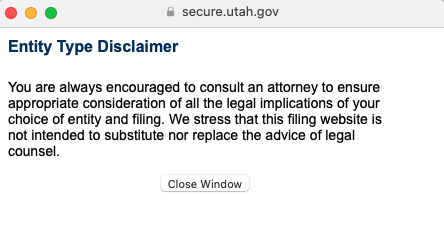
WHAT IS AN LLC?
An LLC is a company that may be made up of Members (Owners) and Managers (People with authority but no ownership.)
A Member managed LLC occurs when the members act as their own managers and don’t distinguish between the two.
A Manager managed LLC occurs when the members elect to do so, and can then give binding authority to Managers (which may be themselves too) to run the company.
It is an entity, with its own Federal Tax I.D. number that can conduct business in its name or a DBA (Doing business as) and own assets.
An LLC may be owned by a Single Member (Sole Proprietor) or Multi-Member (General Partnership).
It also can elect to be taxed as an S-Corp, but more on that in a minute.
4 THINGS TO KNOW AS YOU MAKE YOUR LLC.
1. Registration vs Formation
D.I.Y. (Do it yourself) is one of the most common mistakes in making an LLC.
For example, there are 4 steps to forming an LLC:
1. Registration
2. Operating Agreement
3. Ownership Certificate(s)
4. Organizational Minutes
When you go to the State website you are only registering your LLC. At that point most people think they are done—See the problem yet?
And you won’t know there is a problem until the day you need your operating agreement, you are sued, or you are audited. But it’s too late.
Let’s start you off right!
(The State even warns you but no one pays attention to the fine print...)

(There are over 21 millions LLC's in America. How many are formed right?)

2. Liability
LLC’s are known for limiting liability. But unless you have employees, contractors, or other manager(s)/members(s) this feature is not available yet. (We can use a Trust to protect you here. Ask us how.)
Don’t let this disuade you from forming your LLC as a sole proprietor. You will eventually need it. Just a like a city, the sewer is built before the people come, so when the “stuff” happens, there is a place for it to go…make sense? Your LLC is designed to grow with your business.
Limited Liability is available when the actor (the person who caused the problem) is someone other than you.
When that happens, the actor and their company may be sued, including its members. But the personal assets of the members, who were not the actor, are not on the table, so long as the LLC has been managed correctly.
3. Taxes
This is not tax advice, by any means, but as an LLC, you can there are tax advantages available to you as you work with a qualified tax advisor.
You can also elect to be taxed as an S-Corp, which comes with its own set of rules and advantages, including stopping self-employment tax.
Talk to a CPA or a qualified tax advisor before working with your attorney to have a general idea what you want to do. (Remember, just as we are not qualified to do your taxes, they are most likely not qualified to do your legal work.)
(Remember, just as your attorney is not qualified to do your taxes, your CPA is most likely not qualified to do your legal work.)

(25% of Americans own side businesses. Are you on equal footing with everyone else? Or are you a cut above?)

4. Perception
What is the power of money besides what we give it? Having an LLC is equally powerful.
It may sound silly, but if you have the same blue sand box shovel as other companies do, then people can and want to relate to you.
Put more professionally, when you go to the time and expense of creating your company the right way, the way other companies have, you and others will treat your company with the professional respect it deserves.
Not sure you LLC is formed right?
Many Utah businesses registered their LLC online and don’t have all the pieces in place to offer the maximum protection available.
If you would like an assessment done of your business for $50, click on the link below:
Contracts
Most lawyers and clients want the best contract that will hold up in court.
I want to write a contract for you that will be good enough that you never have to go to court.
Managing expectations in business is critical. Your contract(s) are your first attempt to set the stage. The legal wording is important, but so is the character of the contract. Does yours reflect your company culture or is it just builder plate? Which one do you think will manage expectations better?
You want to write a contract to memorialize the agreement when everyone is excited about the venture. It will guide the parties as to expectations and responsibilities. In the event of a problem, and sometimes those can’t be avoided, the contract will then protect your agreement and investment. We write:
- Client contracts;
- Contractor contracts;
- Employment contracts;
- Operating agreements;
- Purchase agreements;
- Promissory Notes; and
- Any other agreement you need to create.
To get going just use the link to schedule a free Zoom call with us to talk about your needs. Most contracts start at $250 and go up depending on the time required to finish the project. Then you can use the same contract multiple times. It’s a great investment in your company.